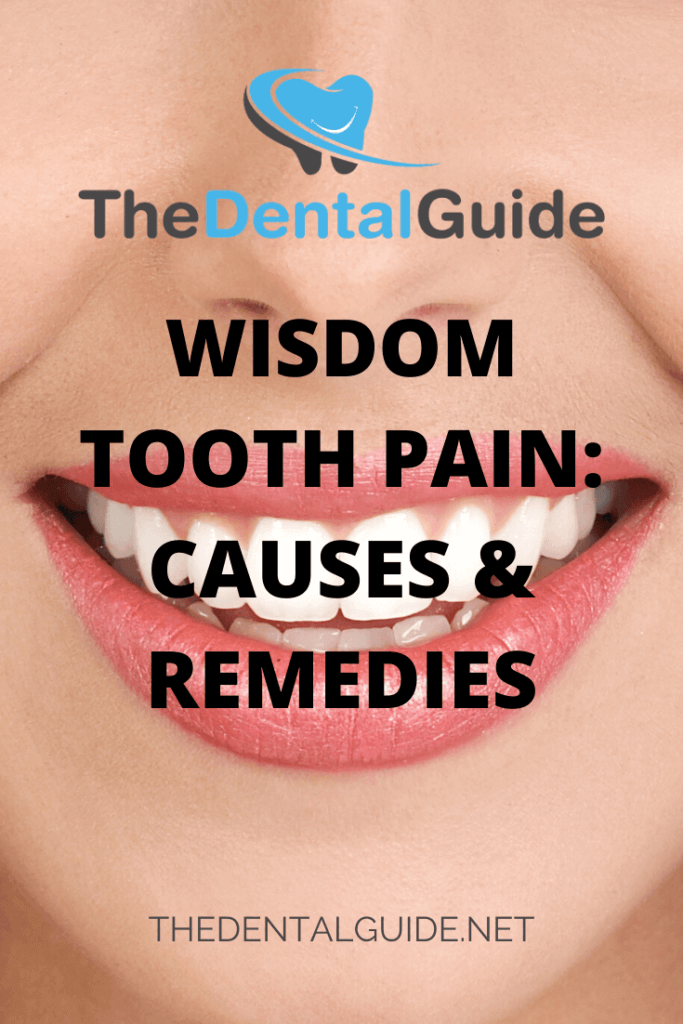Wisdom teeth no longer serve any particular purpose, and they often grow in ways that affect overall oral health, sometimes causing pain. However, identifying why they might be causing pain, and how you can relieve those wisdom tooth pain symptoms, is easy. However, do bear in mind that wisdom teeth pain may eventually warrant a visit to the dentist.
Symptoms of Wisdom Tooth Pain
Wisdom tooth pain symptoms may arise when a wisdom tooth grows sideways into the jaw. Sore gums are usually the first sign that your teeth or gums are infected. They may be red, tender, swollen, and they may even bleed. The swelling may spread to your jaw, face, and lymph nodes, but such cases are rare.
Sometimes, the gums might be inflamed and tender from impacted wisdom teeth. More often, wisdom teeth pain is from overcrowding in the mouth, and the teeth pushing against each other. If your gums are swollen, it could be an early sign of periodontal disease or pericoronitis, when bacteria accumulate in your gums and infect them.
Wisdom teeth growth might also make it hard to open your jaw wide. When the wisdom teeth move against your regular teeth, it can make them move a little, causing jaw discomfort. If your wisdom teeth get trapped under your gums, this can build up pressure, which can also produce headaches.
Causes of Wisdom Tooth Pain
If wisdom teeth grow crooked or become impacted and cause an infection around your gums, they can generate more significant oral problems later in life. With oral pain, it’s crucial to identify whether your wisdom teeth or regular teeth are causing the problem.
Tooth decay, nightly teeth grinding, a gum infection, or broken or damaged fillings can all cause oral pain. Wisdom teeth pain is more easily identifiable in that the teeth could be overcrowded, there isn’t enough room for them to grow in comfortably, or the gums are swollen.
Pain could also be a result of gum irritation or infection, especially from a partially erupted wisdom tooth. Food and bacteria particles can get trapped in the gums during growth, which fosters bacteria growth that irritates and infects them.
The only way to confirm what’s causing your pain is to see your dentist, especially if you cannot easily see the cause.
How Long Does the Pain Last?
How long wisdom tooth pain lasts depends on the nature of your teeth, jaw, and gums. The pain might come on suddenly, or it might come on gradually. It would be prudent to make an appointment with your dentist if the pain lasts longer than a few days.
Pain Relief Options
Many remedies for wisdom teeth pain relief can be made right at home. However, it’s crucial to remember that any persistent pain should prompt you to schedule an appointment with your dentist. Home remedies can come in handy while you’re waiting for your wisdom teeth removal appointment.
A simple home remedy for stopping wisdom tooth pain is using a salt water mixture. For swollen gums, mix a teaspoon of salt in warm water to clean out any bacteria or food and soothe irritation. Make sure the salt dissolves before use, and swish in your mouth for about a minute before spitting.
Over-the-counter pain medication such as ibuprofen can help by lowering inflammation. Make sure you take as many as recommended and discontinue as directed by your doctor.
Numbing gels, especially those containing the active ingredient benzocaine, can be prescribed to numb the pain. They typically include an astringent to reduce irritation and menthol to soothe the gums.
A cold compress or ice pack wrapped in a towel might also ease the pain. If you have wisdom teeth pain on both sides, gently press the pack to one side for one minute, and then switch to the other side. If an ice pack is not available, put ice cubes in a zip-up bag and wrap in a thin towel. A bag of frozen vegetables will also work.
Hard or sugary foods might increase wisdom teeth pain, so be sure to continually flush your mouth with water or salt water.
If available, you can dab clove oil onto a cotton ball and gently press onto the affected area. Clove oil has anaesthetic and antibacterial properties, so it’s safe for your teeth and can slightly numb the pain. You can also place a whole clove right on the affected area, but make sure not to smash or cut the clove. Peppermint leaves or extracts can have similar effects.
Final Thoughts
When painful symptoms arise, it’s important to seek dental care as soon as possible. Impacted teeth are likely to continue causing pain and damage, and wisdom tooth removal is a fairly common procedure. While homoeopathic and OTC pain relief options are available, their primary purpose is to temporarily reduce pain, not cure it altogether.
